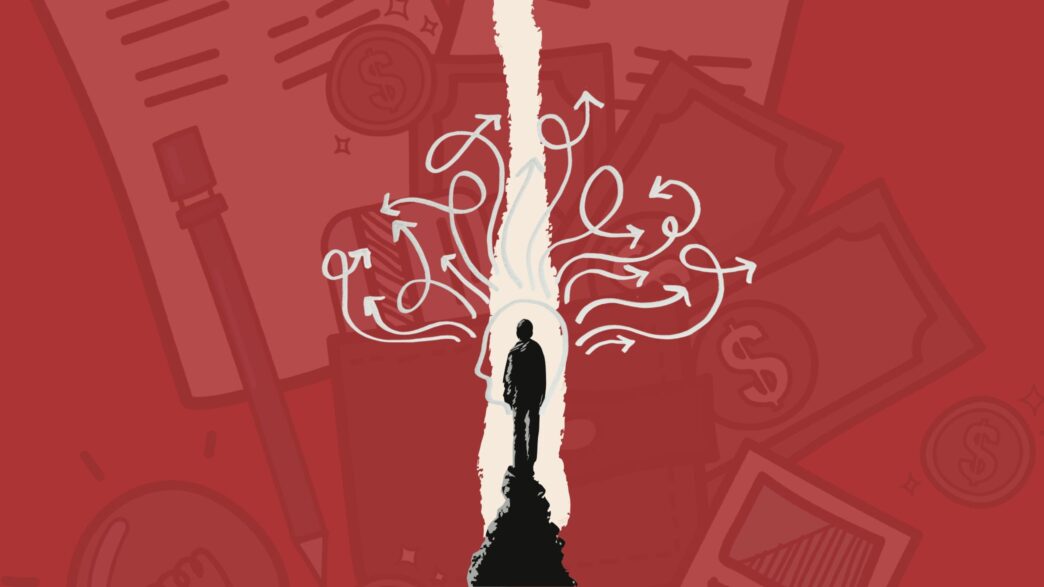It’s no secret that America’s mental health crisis has left therapists stretched thin.
But what’s less visible and rarely discussed outside professional circles is how the very structure of private practice is putting therapists at risk for burnout, debt, and disillusionment.
When people picture a therapist, they often imagine a quiet office, a warm presence, a trusted guide through life’s hardest seasons.
What they don’t see is the hidden weight these professionals carry when they choose to serve their communities independently.
Behind each appointment is a small business. And for too many therapists, that business is quietly becoming unsustainable.
A System Built on Emotional Labor and Unpaid Labor
Unlike many other healthcare providers, private practice therapists handle everything themselves.
There is no billing department to chase unpaid claims, no IT team to manage scheduling glitches, no marketing staff to ensure a steady flow of referrals.
It’s one person, wearing every hat! Clinician, administrator, accountant, marketer, insurance negotiator, landlord, and tech support.
This work is invisible to clients and yet, it can swallow hours each week, hours that go completely unpaid.
It’s a problem that’s grown worse in recent years as new mental health tech startups promise to “streamline” practice management but at a steep monthly cost.
When Tech Solutions Add Up to More Stress
Walk through any therapist Facebook group and you’ll see posts like this:
“Anyone else feel like they’re drowning in subscriptions?”
Electronic health record software, HIPAA-compliant video platforms, intake forms, appointment reminders, billing services, SEO tools, each one marketed as a “must-have” for a modern private practice.
Many of these tools are genuinely helpful. But their cumulative cost can add hundreds, if not thousands, to overhead each month.
Combine that with inconsistent insurance reimbursements, late payments, and the constant need to attract new clients, and you have a profession that often demands an extraordinary amount of unpaid, unprotected labor just to keep the doors open.
The result? A growing number of therapists quietly consider shutting down their practices to join larger groups or venture-backed platforms that promise steady referrals but at the cost of autonomy and, often, sustainable pay.
Why This Should Matter to Everyone
The hidden burnout of therapists is not just an “industry problem.” It directly affects the quality and availability of care for millions of people.
When experienced, independent therapists leave private practice because they can’t make the business work, communities lose trusted providers.
Waitlists grow, continuity of care breaks down and people seeking therapy are more likely to be shuffled through high-turnover corporate networks where profit often comes before person.
What’s worse is that too few people realize this is happening.
How We Fix It
Therapists need support that doesn’t drain them further! They need simple, affordable tools that lighten administrative burdens, not just shiny new software with hidden fees.
They need clear, fair insurance processes that don’t force them to work for free.
They need platforms that prioritize real human connection over corporate consolidation.
They also need US, as clients, colleagues, and communities to see them as professionals running small businesses, not just providers of endless emotional labor.
If you’re a client who loves your therapist, pay your bills on time!!! Respect their boundaries!!! Understand that for every hour they spend with you, there’s another spent on forms, claims, and systems that keep that relationship possible.
If you’re a policymaker, make the mental health system less predatory for solo providers.
Transparency in insurance reimbursements, protections against predatory middlemen, and incentives for true community-based care would go a long way.
Protecting the People Who Hold Us Together
Private practice therapists are the backbone of mental health access in America.
But behind the calm voice on the couch is a human being trying to make a living in an industry that too often exploits their compassion.
Burnout doesn’t happen overnight, it happens in the daily grind that no one sees. If we care about mental health, we must care for the people who hold that care together.
And it’s worth recognizing solutions that do get it right. One example is Allia Health, a company that genuinely understands the hidden burdens therapists carry and has created a free platform to help lighten that load.
This is not an ad; it’s real appreciation for an effort that shows what supporting therapists can look like when profit isn’t the goal but people are.
If we want a future where care is accessible and sustainable, we have to build systems that sustain those who provide it.























